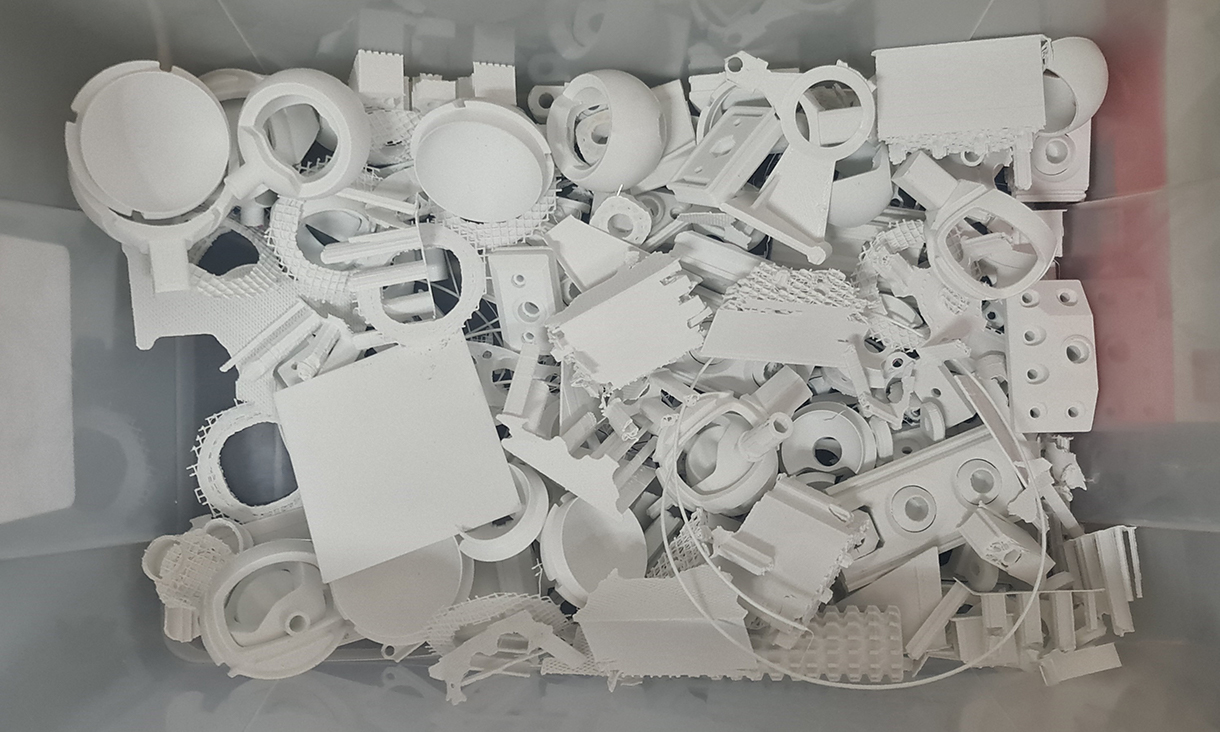Swinburne joins new sustainability and waste consortium

Domestic 3D printer using recycled plastic waste filament. Image supplied by Professor Marcus White.
In summary
- Swinburne joins a new Sustainable Communities and Waste Hub consortium.
- Swinburne’s contributions will be led by Professor Marcus White.
- The consortium is supported by the federal government’s $149 million second phase of the National Environmental Science Program.
Swinburne has joined a new Sustainable Communities and Waste Hub that is spearheading sustainability research, supported by a successful $17 million submission to the federal government’s National Environmental Science Program.
The hub is led by UNSW Sydney and composed of six world-class research institutions, also including the Commonwealth Scientific and Industrial Research Organisation (CSIRO), Monash University, Curtin University and the University of Tasmania.
The Sustainable Communities and Waste Hub is led by Australian Research Council Laureate Scientia Professor Veena Sahajwalla, a materials scientist, engineer, inventor and a founder and director of UNSW’s Centre for Sustainable Materials Research and Technology.
Swinburne School of Design’s Professor Marcus White is leading the Swinburne team with researchers across the university taking part. Together, they will be demonstrating the power of multidisciplinary design thinking to resolve complex problems.

Architectural design rapid prototypes printed from waste plastics, ready to be recycled again. Image supplied by Daniel Prohasky.
The Sustainable Communities and Waste Hub will deliver:
- targeted information and management tools to reduce the impact of plastic and other material on the environment
- applied scenario-modelling to support sustainable people-environment interactions in communities including urban heat island impacts and liveability analysis
- effective and efficient management options for hazardous waste, substances, and pollutants throughout their lifecycle to minimise environmental and human-health impacts
- research that supports maintained and improved air quality.
Swinburne is looking forward to contributing game-changing research that improves the future of our world.
-
Media Enquiries
Related articles
-

- University
The future of fashion: Swinburne launches groundbreaking tech-focused fashion course
Swinburne University of Technology is fusing high tech and high fashion to launch a new forward-thinking Bachelor of Design (Fashion).
Thursday 25 July 2024 -

- University
Swinburne achieves first Cygnet Award through SAGE Athena Swan program
Swinburne has achieved its first Science in Australia Gender Equity (SAGE) Athena Swan Cygnet Award.
Monday 01 July 2024 -

- University
Future of National Institute of Circus Arts (NICA) secured
NICA will transition from Swinburne to the Australian College of the Arts (Collarts), as part of a new agreement that secures the future of circus arts in Australia.
Monday 22 July 2024 -

- University
Swinburne among world’s top 15 universities for scientific impact
Swinburne has been ranked in the top 15 universities in the world for scientific impact across all disciplines, based on the proportion of a university’s papers that belong to the top 1 per cent most cited in the 2024 CWTS Leiden Rankings.
Friday 19 July 2024 -

- Design
Swinburne alum launches zine celebrating Asian Australian art and identity
Swinburne Graphic Design alum Dan Truong founded HOISZN, a zine publication showcasing Asian Australian artists and their work.
Monday 01 July 2024

